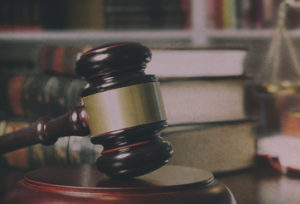 ‘Can I get a DWI expunged’ is a common question among New Jersians with a criminal record. This is because having a criminal record can be devastating. Aside from hurting your ability to get gainful employment, it can also affect your eligibility for insurance coverage and mortgage. If you have been arrested for driving while intoxicated, you need to hire a competent NJ Criminal Defense Lawyer.
‘Can I get a DWI expunged’ is a common question among New Jersians with a criminal record. This is because having a criminal record can be devastating. Aside from hurting your ability to get gainful employment, it can also affect your eligibility for insurance coverage and mortgage. If you have been arrested for driving while intoxicated, you need to hire a competent NJ Criminal Defense Lawyer.
The penalties for a DWI conviction in New Jersey can vary depending on several factors. For instance, a first-time offender might receive a lighter punishment than a repeat offender. You are also more likely to acquire serious charges if you cause an accident that injures someone.
Let’s take a look at how you can handle a New Jersey DWI conviction.
Expungement in New Jersey
Expungement refers to the removal of criminal charges from your record. In New Jersey, certain convictions can be expunged. These include indictable crimes such as:
- disorderly persons
- drug offenses
- simple assault charges
Unfortunately, once you are convicted of a DWI, it stays on your permanent driving record. This is because a DWI or DUI charge is a traffic offense and not a criminal offense. By maintaining these records, the state can identify repeat offenders and enforce stricter penalties on them.
That said, a DWI conviction doesn’t show up on your background check. This means that it will likely not affect your ability to get a job or housing. But, it could result in surcharges from your insurer.
 Post-Conviction Relief
Post-Conviction Relief
After a DWI conviction has been passed, you can challenge the judgment through a post-conviction relief motion. This is a situation where you argue that your trial attorney failed to defend you satisfactorily during the trial. You can attempt to prove that their actions or omissions hurt your case.
In essence, DWI appeals are rarely successful. It is almost impossible to get the guilty verdict reversed. Nonetheless, there is no risk of getting your sentence increased, and you may even get the court to reduce your penalties.
10-Year Step Down for Subsequent DWI Convictions
In New Jersey, people with DWI convictions are subject to the ‘ten-year step down’ rule. This means that if you get arrested for a DWI 10 years after your first conviction, you will be treated and sentenced as a first offender.
For instance, if you get arrested for driving while intoxicated 13 years after your first conviction, you might have your driving license suspended for 3 months to 1 year instead of 2 years.
This leniency is not available before 10 years pass between your first and second or second and third convictions. If you are arrested in the 8th year, you will face the stricter penalties reserved for repeat offenders.
Hire an NJ Criminal Defense Attorney
A permanent conviction on your criminal record can be a real burden. This is why it is crucial that you retain legal representation at the time of your arrest. Doing so will give you your best chance of beating a DWI conviction.
 NJ Criminal Defense Attorney, Brian J. Neary, has handled many DWI cases. Depending on your case’s nature, he can challenge the evidence against you and have your charges reduced or even dismissed. He can also help you avert any additional fines or the loss of your license.
NJ Criminal Defense Attorney, Brian J. Neary, has handled many DWI cases. Depending on your case’s nature, he can challenge the evidence against you and have your charges reduced or even dismissed. He can also help you avert any additional fines or the loss of your license.
If you are dealing with a DWI case, contact Neary Law LLC today. Contact us at (201) 801-4455.
